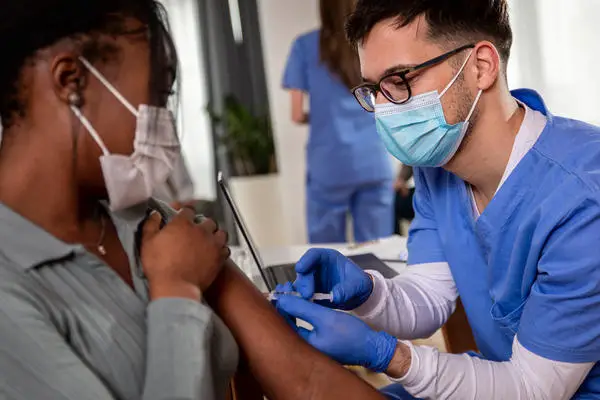
What You Should Know About Vaccine Injuries
Vaccines are touted by medical experts as the best form of protection against a large number of contagious diseases, most notably the Coronavirus, hepatitis, measles, and polio. Because of pervasive vaccination, some of the said conditions have been eradicated in most countries.
However, like any other medication, these preparations can trigger different responses from one person to another. In some instances, a vaccine may lead to allergic reactions. In worst-case scenarios, one may develop vaccine injuries.
So, when should you suspect a vaccine injury? Read on to discover what you should know about the potentially severe effects of getting a jab.
What Are Vaccine Injuries
A vaccine is a preparation that contains weakened microorganisms that cause the disease it hopes to fight. When injected, it aims to help the body’s immune system detect and combat the actual disease to gain immunity. It may cause fever, muscle pain, soreness, and discomfort at the injection area. These often go away on their own in a few hours to up to a day or two.
If these adverse effects last for a long time, it may be a vaccine injury, so consult your doctor as soon as possible to prevent severe conditions or, on rare occasions, death.
An injury can happen when the vaccine is administered by mistake, for instance, when an intramuscular injection missed the correct muscle. Injuries can also occur when a person develops health issues following the injection.
7 Signs Of A Potential Vaccine Injury
Unfortunately, you can’t pre-determine whether the vaccine isn’t suitable for you unless it’s administered. To prevent further injuries, it’s best to visit your doctor if you feel off immediately after receiving a dose.
Watch out for the following severe symptom and take them as a sign of a possible vaccine injury:
- Breathing difficulties
- A disoriented state
- Heavy feeling on the chest
- Severe diarrhea
- Low blood pressure
- Hyperventilation
- Swollen throat
Regarding the vaccines aimed to fight the Coronavirus disease-2019 (COVID-19), seniors are believed to be among the most vulnerable. Thus, they’re being prioritized in most COVID-19 vaccination programs in countries worldwide.
6 Types Of Vaccine Injuries
The United States (U.S.), through the Centers for Disease Control (CDC), has a Vaccine Adverse Event Reporting System (VAERS), which serves as a warning system for potential adverse effects of vaccines that have been approved for use by the Food and Drug Administration (FDA). Based on the database, the most common vaccine injuries reported include the following:
- Shoulder Injury Related to Vaccine Administration (SIRVA): This type of injury often results in soreness, numbness, loss of strength, and pain on the shoulder. In worse cases, it can lead to medical issues such as adhesive capsulitis, rotator cuff injuries, shoulder tendonitis, bursitis, and brachial neuritis.
- Guillain Barre Syndrome: This autoimmune disorder affects the nerve cells and is often attributed to flu and tetanus vaccine shots. Limb pain and weakness are usually the immediate signs of Guillain Barre disease which can later spread to the other parts of the body. Other symptoms include walking and breathing difficulties, loss of bladder control, and dramatic heart rate and blood pressure changes.
- Encephalitis: This condition happens when an infection or the body’s immune response causes brain inflammation. Most cases resolve in time but, in rare instances, may lead to brain damage.
- Anaphylaxis: This is a hallmark symptom of an allergic reaction to the vaccine and its components. A sufferer might experience serious symptoms such as severe itching and throat swelling.
- Chronic Rheumatoid Arthritis: Some individuals who’ve had rubella vaccines may face a greater risk of developing chronic rheumatoid arthritis. Adult women are said to be particularly vulnerable.
- Traverse Myelitis: This condition is caused by inflammation of the spinal cord. Because of this, a person may suffer from sensory and motor nerve tissues, which leads to numbness, loss of strength, and bladder dysfunction.
What Is The VICP?
Vaccine injuries are typically rare. As of writing, there are reported cases before the National Vaccine Injuries Compensation Program (VICP). It’s a federal-government-run program that provides remunerations to persons who are confirmed to have had incurred vaccine-related injuries and conditions.
To qualify, an individual must check the vaccine injury table, which lists the potential injuries caused by vaccines and the symptom attributed to each condition.
Individuals who incur severe health problems may file a complaint with the VICP before filing a case against vaccine manufacturers. The good thing about the program is it offers to pay for legal costs on top of the compensation a beneficiary can receive.
Final Thoughts
Vaccination continues to be a contentious issue in some societies worldwide. Regardless, the public must be informed of the potential side effects of a vaccine. If you’re still waiting to be inoculated, ask your healthcare professionals about the vaccine before getting a jab. And if you don’t feel right after an immunization, contact your physician right away.